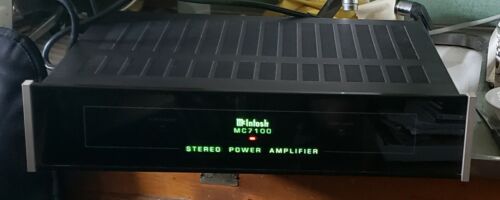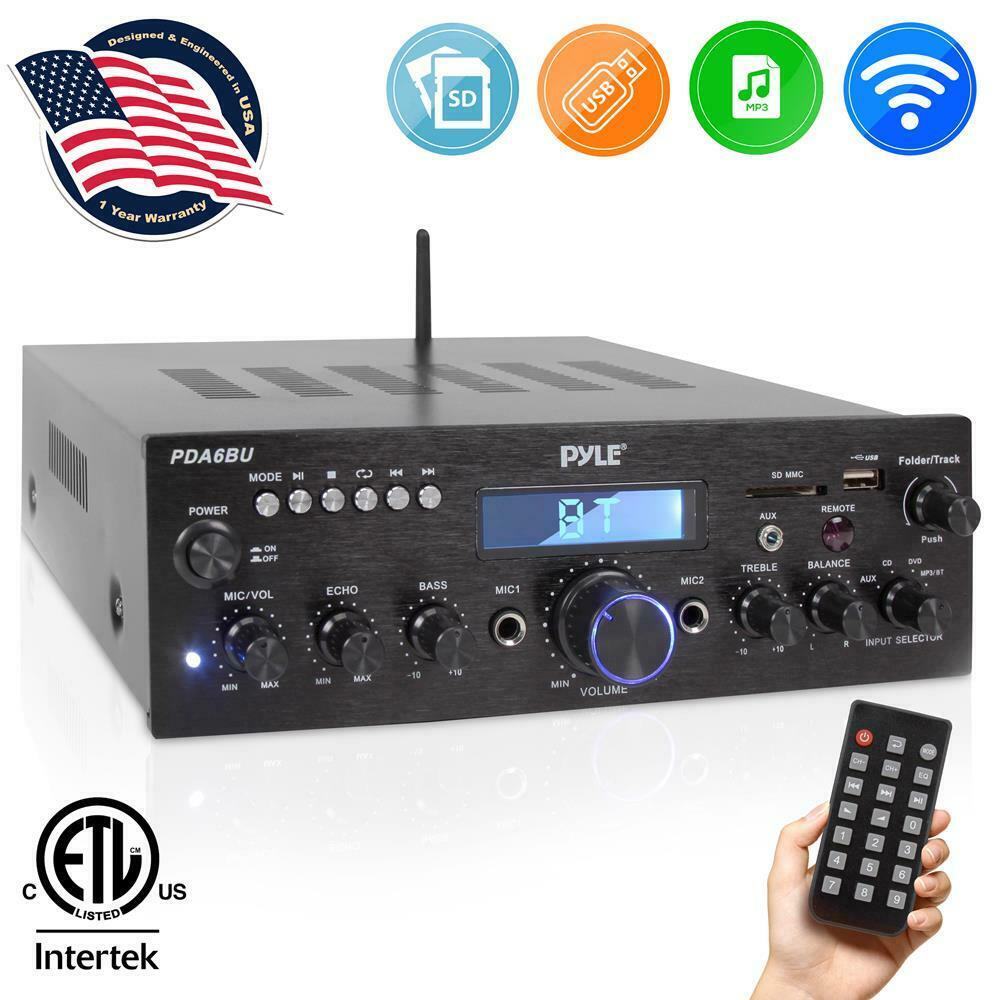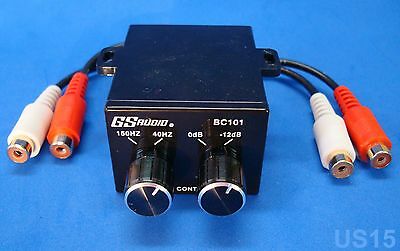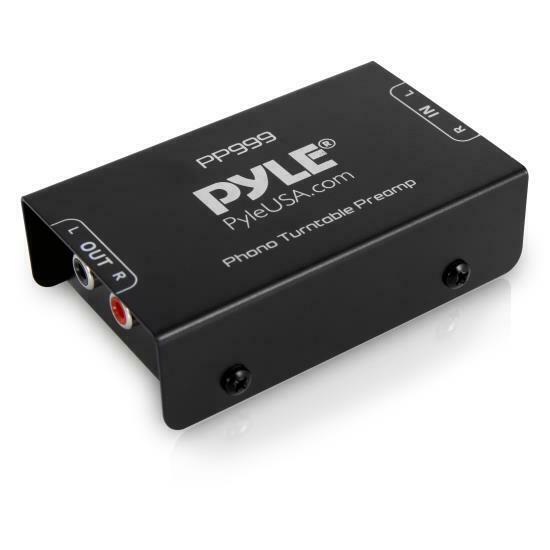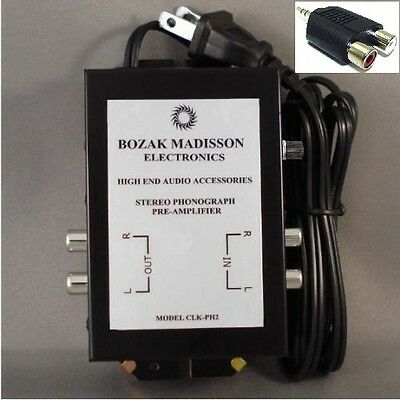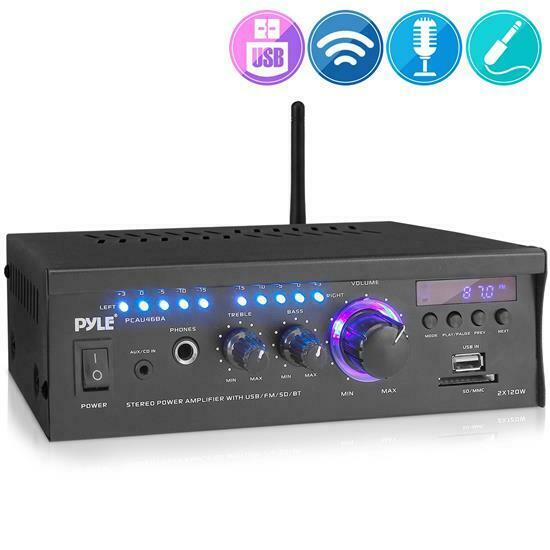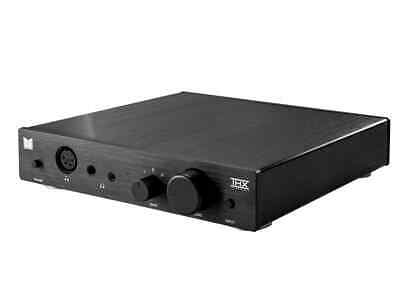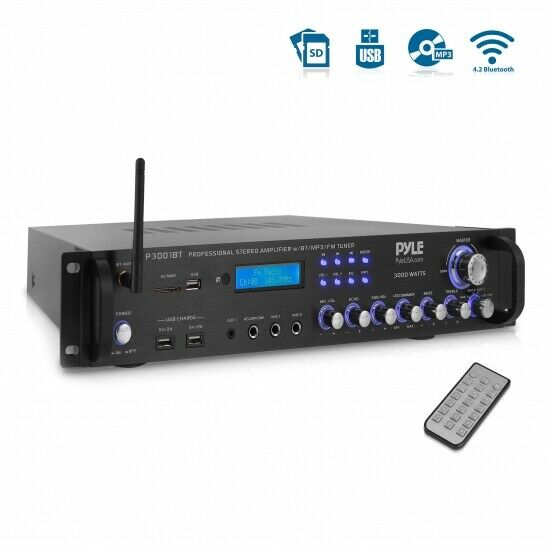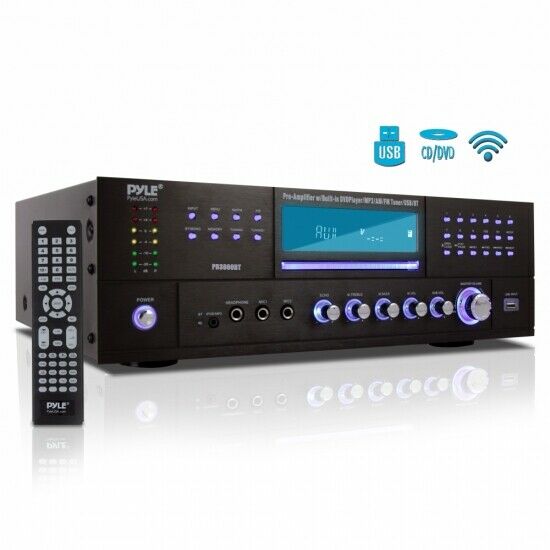-40%
McIntosh MC7100 STEREO Power Amplfier / 100wpc Audiophile Quality
$ 738.67
- Description
- Size Guide
Description
Presenting excellent example of the highly regarded McIntosh MC7100 STEREO Power Amplifier.Power: 100wpc
Power Guard Speaker Protection.
This is the more desirable later version with balanced input connectors.
Cosmetics are real.clean. No cracks or bubbles on glass faceplate.
All lamps functions.
No Hum.
Nice clean sound.
Purchased from the original owner.
HiFi Review :
McIntosh line, the MC7100 is a basic stereo power amplifier rated at 100 watts per channel into 8 ohms or 150 watts into 4-ohm loads. A switch on the amplifier's back panel converts it to bridged-mono operation, with a 300-watt power rating into 8 ohms.
McIntosh amplifiers have always been noted for their very low distortion, and the MC7100 is no exception. It is specified to have no more than 0.005 percent total harmonic or intermodulation distortion at any power level from 250 milliwatts up to the rated output, at any frequency from 20 to 20,000 Hz.
Like other McIntosh amplifiers, the MC7100 incorporates the company's Power Guard circuit, which effectively prevents audible clipping distortion as well as any speaker damage that could result from such operation. Power Guard compares the input and output signal waveforms, which are ordinarily identical except in amplitude. If the difference between them in either channel is more than the equivalent of 0.3 percent harmonic distortion, the amber front-panel Power Guard light for that channel flashes as a warning. If the difference continues to increase, the Power Guard circuit operates an electronic attenuator at the input to reduce the amplifier gain just enough to prevent any further increase in distortion. McIntosh says that distortion will not exceed 2 percent with as much as 14 dB of overdrive. Unlike some conventional amplifier protection circuits, Power Guard cannot introduce distortion of its own into the sound.
The MC7100 is protected against damage (to itself or to the loudspeakers) by several additional circuits. Sentry Monitor senses the dynamic operating conditions of the output stage and protects it from damage due to driving a short circuit or an undesirably low speaker-load impedance. The MC7100 is relatively efficient and needs no cooling fan, but prolonged operation at high power levels without adequate ventilation could result in undesirably high temperatures. In that event, a thermal cutout turns off the speaker output and the Power Guard lights come on to indicate that thermal protection is engaged. The amplifier turns back on automatically when the temperature returns to a safe level. Finally, a circuit protects the speakers from damage by shutting off the outputs if a DC voltage should appear.
The MC7100 is a relatively compact amplifier with about half of its interior occupied by the massive heat-sink structure for its twelve complementary-symmetry output transistors and a large toroidal power transformer. Its rear apron has barrier-type terminal strips for the speaker outputs, accepting only wires or spade lugs. There are also finger-operated input-sensitivity controls for the two channels, a small slide switch that converts the amplifier from stereo to bridged-mono operation, a line-fuse holder, and an unswitched AC outlet.
The McIntosh MC7100 became only moderately warm during our preconditioning and testing (in normal use, its exterior remained very close to room temperature). It exceeded its power specifications by a comfortable margin and produced exceptionally low distortion in the process. Total harmonic distortion (THD) at 1,000 Hz ranged from 0.0043 to 0.0037 percent from 1 to 100 watts into 8 ohms with both channels driven and from 0.0044 to 0.0029 percent from 1 to 150 watts into 4 ohms. (The thermal protection shut the amplifier down several times during these tests, but it came on again after a minute or so.) Maximum power output into 8 ohms at 0.1 percent distortion was 132 to 136 watts from 50 to 20,000 Hz, falling to 124 watts at 20 Hz. Into 4 ohms, the available output was between 205 and 210 watts from 80 to 20,000 Hz and 192 watts at 20 Hz.
Input sensitivity for a 1-watt reference output into 8 ohms was 140 millivolts (mV) with the sensitivity adjustment at maximum and 260 mV with the control at its detented middle setting, which McIntosh recommends if the overall system levels permit it. Noise was unusually low and frequency response extremely flat-within +/-0.02 dB from 10 to 100,000 Hz and down just 0.25 dB at 200,000 Hz.
The McIntosh MC7100 represents a happy combination of truly state-of-the-art performance and design, handsome styling, and electrical and mechanical ruggedness from a company that has enjoyed an enviable reputation for customer support and product reliability for almost fifty years. It is also something of a bargain for a McIntosh product. Priced well below most so-called "high-end" amplifiers, it appears to provide most of their good qualities at a price not far above those of many well-known mass-market designs. That's great engineering.
SEE THE MATCHING MX118 Control Center Am/FM Stereo preamp we have posted.
